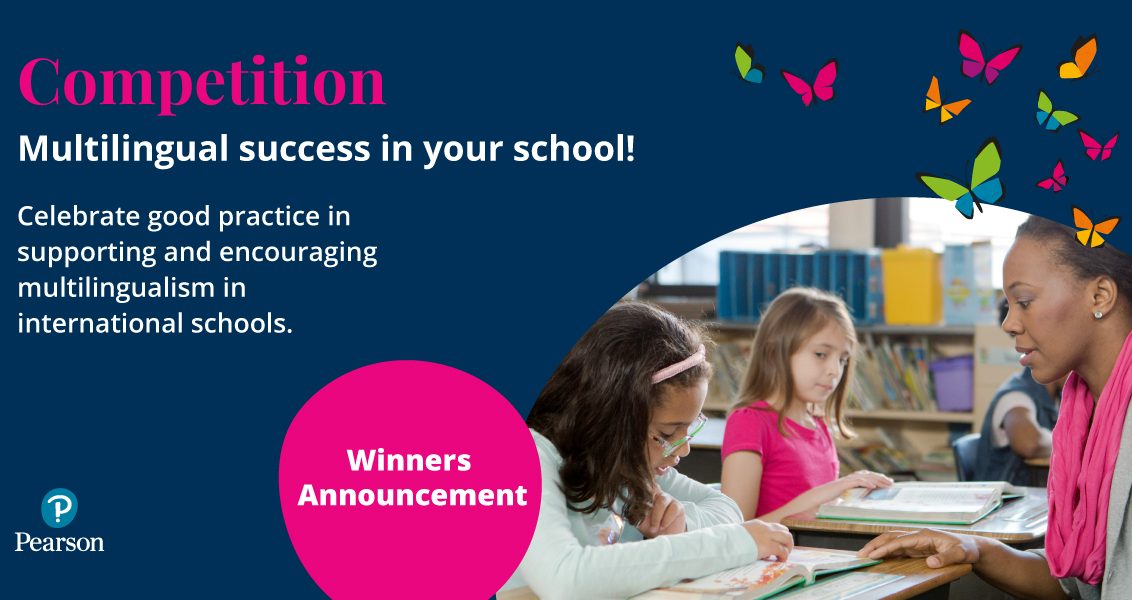
Thank you to everyone who took part in our Multilingual success in your school competition! We were impressed by the originality of some of the entries and it looked as if your students really got engaged with the activities, which is fantastic!
However, there could only be three winners, so with much deliberation between ourselves and Dr Patricia Mertin, our head judge, the final decisions were based on the entries that showcased projects which encouraged cooperative student engagement in the classroom over a longer period of learning time.
In all three cases below the use of other mother tongues was within the classroom, so that all students heard, appreciated and understood the importance of other languages while they were working. These projects also involved contributions, in discussions and support from the parents, which is also important for encouraging effective learning.
The 3 winners of the competition are as follows:
- 1st Place winning £500 worth of resources is Sands National Academy in Jordan
- 2nd Place winning £300 worth of resources is Àgora Lledó International School
- 3rd Place winning £200 worth of resources is Marymount International School
A huge congratulations to you all and enjoy your prizes! Also, a massive thank you to Dr Patricia Mertin and her expertise in helping us judge the entries!
Carry on reading to find out why they won
In third place was Marymount International School in Italy with their initiative Unity Through Diversity Unit in the Elementary School grades K-5, submitted by Aimee Fenneman.
In the activity, the students first discussed ideas connected to the terms – international and identity and each grade spent between 4 – 6 weeks investigating the themes:
Grade 5 – Human Rights
Grade 4 – World Religions
Grade 3 – Importance of our names
Grade 2 – Music and games from around the world
Grade 1 and Kindergarten – Identity
Each grade included at least one dual language learning activity, produced at least one multilingual bulletin board, teachers included interlingual teaching. The final activity was a multilingual assembly followed by visits to each other’s classrooms.
This was a powerful way to increase young children’s awareness of languages and culture, for students to demonstrate their learning in their mother tongue’s through the activities for the students to be actively involved in their learning and encouraged to use their mother tongue, to share their mother tongue’s in an age appropriate way while still following a shared theme.
It was also an excellent and age appropriate way to learn about international/interculturalism.
In second place was Àgora Lledó International School in Spain with the initiative Knowing the past to understand the future project, submitted by Marta Ripolles.
In this activity students researched the Spanish Civil war in their mother tongues and produced a multilingual mural.
The judges agreed this was a powerful way to:
a) develop both mother tongues and English
b) to deepen students’ understanding of the war and how this influences the future
c) to encourage students’ engagement and activity in undertaking their own MT research
d) to encourage recognition and appreciation of other students’ mother tongues
d) encourage discussion and cooperation across the languages in the creation of the mural
We felt this idea was original idea and impressive.
And finally, in first place was Sands National Academy in Jordan with the initiative The bilingual science debate, submitted by Khattab Abdullah.
We unanimously agreed that this innovative project was a powerful way to:
a) develop the students’ knowledge of science in English and their mother tongue
b) deepen the understanding of the topic through the use of MT and English for mother tongue and English speakers equally.
c) develop their vocabulary and language structures in both languages
d) powerfully recognise the importance of the mother tongue and its equal standing with English
e) promote students’ initiative, action and lively involvement through the debate
f) enable students to be truly actively involved in the lesson learning science and languages concurrently
This was an idea particularly Patricia, our head judge had not come across before and it’s originality was very impressive.
Our Community site is a great place to share teaching ideas, lesson plans, examples of your students’ work and to also gain exclusive insights into the subject you teach – don’t hold back sharing and discussing!
Thanks again to everyone who entered and watch this space for our future competitions.
See who made the top 10
Multilingual success in your school competition shortlist

